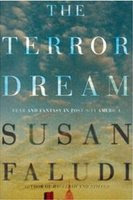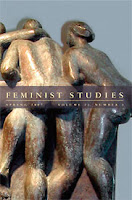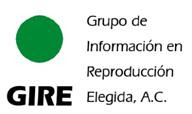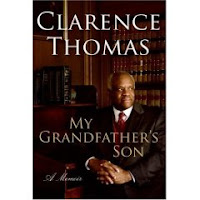 I love it when there are enough books by feminists hot on the popular radar that I have a hard time deciding which to think/write about first. I’m thinking of course of Faludi’s The Terror Dream, Laurel Thatcher Ulrich’s Well-Behaved Women Rarely Make History, and Katha Pollitt’s Learning to Drive and Other Stories. Since I’m still in the middle of them all, I’ll just point to an interesting convo that’s going on.
I love it when there are enough books by feminists hot on the popular radar that I have a hard time deciding which to think/write about first. I’m thinking of course of Faludi’s The Terror Dream, Laurel Thatcher Ulrich’s Well-Behaved Women Rarely Make History, and Katha Pollitt’s Learning to Drive and Other Stories. Since I’m still in the middle of them all, I’ll just point to an interesting convo that’s going on.
Over at TMPCafe Book Club, Garance Franke-Ruta, Jessica Valenti, Amanda Marcotte, Chris Hayes, and Todd Gitlin are collectively offering their takes on Katha’s book. Katha kicks it off with a post titled “When the Political Can’t Be Personal,” in which she expresses her surprise at some of the indignant, misogynist public response to her getting personal, particularly the New York Times review by Toni Bentley–which I agree was energetically negative and over the top.
But I remember Katha’s 1999 review, in the same venue, of three books from the 1990s that seemed to use an n of 1 to make sweeping and often misguided claims (what my sociologist friend calls “me-search”): Wendy Shalit’s A Return to Modesty, Danielle Crittenden’s What Our Mothers Didn’t Tell Us, and Katie Roiphe’s Last Night in Paradise. Her review was titled “The Solipsisters” and began,
Surveying the recent spate of books about women, even the most dedicated feminist might find herself muttering, ”Be careful what you ask for, you might get it.” I’m thinking of the way ”the personal is political,” that watchword of 1970’s feminism, has morphed and mushroomed into something quite other than originally intended — indeed, almost the opposite.
Katha went on to take these young writers to task for assuming that “personal testimony, impressions and feelings are all you need to make a political argument.” I couldn’t agree more, and my distaste for these particular books (well, Shalit’s and Crittenden’s for sure) is and was strong. Katha also noted how some of the most influential texts of feminism (like The Second Sex and The Feminine Mystique) have actually been rather un-self-revealing.
So my question becomes, where and how do we draw the line? And what’s most effective in terms of affecting readers and changing minds?
I’m thinking my next book may have more of “me” mixed in with the commentary this time–but I’m wary. I’m going to a feminist salon later this month where the topic is “Writing in the First Person” and can’t wait to mull over the question with the pros.
Meanwhile, I loved Katha’s retort to Bentley:
[I]t is a strange experience to be accused of telling too much by the author of an ‘erotic memoir’ about sadomasochistic anal sex, in which she describes, among many other graphic details, saving her used condoms in a box. I’m no Freudian, but the concept of projection does come to mind.
HAHAHAHA!
 So Dove has a new spot–which, sorry, I think is pretty great–called “Onslaught.” Broadsheet’s Catherine Price thinks it’s pretty nifty too:
So Dove has a new spot–which, sorry, I think is pretty great–called “Onslaught.” Broadsheet’s Catherine Price thinks it’s pretty nifty too:









